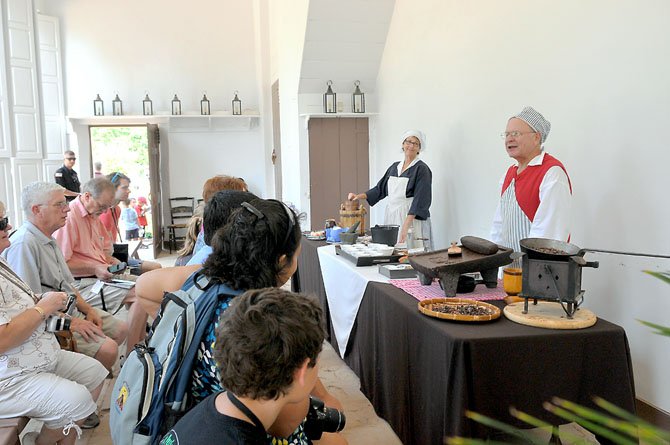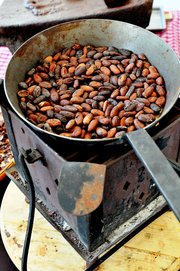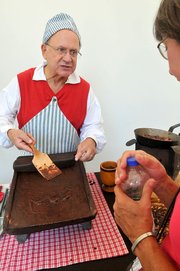Karen Menatti and Ron Field, historic interpreters at the Mount Vernon Estate, entertain visitors with demonstrations on the making of colonial chocolate and ice cream.
As the temperature and humidity raced toward 90 on Aug. 4, chocolate ice cream was being made in the green house at the Mount Vernon Estate.
Karen Menatti and Ron Field, historic interpreters, demonstrated the colonial techniques for making chocolate and using the chocolate to flavor ice cream.
To make the chocolate, Field first roasted the cocoa beans, shelled them and crushed the beans in a large bowl. The beans then are grounded on a metate, a grinding stone, with an iron rolling pin called a mano. The metate is heated from below. Later the spices are added. Some of the spices used were anato, cinnamon, vanilla, nutmeg, anise, chili peppers and anise.
Meanwhile Menatti prepared ice cream with a cream machine similar to what Gen. George Washington ordered for the household in 1784. To make the ice cream, milk, cream, sugar and flavoring were mixed together and put inside the creaming canister and turned and agitated in the salt ice which was in an outer bucket. After the mixture thickened, the mixture was transferred to molds for setting.
For more information about events and activities at the Mount Vernon Estate visit www.mountvernon.org.



